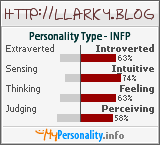Gagne's Nine Events of Instruction
(He argued that learning can fail at any of these eight stages.)
1. Gain attention(This I think is the most important stage)
I've noticed that the best way to gain people's attention is to appeal to people's emotions(arouse their emotions-> either negative or positive.) Auditory and visual stimuli do not necessary work if they are not connected to people's sensitive side. So the best way to grab the attention of audience is to know who they are first.
Example 1: Using pictures of poor Asian children to collect donation will only inspire/move people are who interested in such subject (especially parents, people who have had disturbingly poor childhood, etc)
Example 2: Models with big buttocks in advertisements are more likely to attract customers in African or South American community than they are in Europe or Asia.
2. Inform learners of objectives
It's more effective and relieving to learn with clear objectives than doing so accidently and sponteneously.
Example: Looking for answers with questions(objectives)in mind > Looking for answers
3. Stimulate recall of prior learning
It's easier/quicker to learn with prior knowledge than learning it from scratch. Even if it's completely new knowledge, you can always try to familiarize it.
Example: The word "actually" in Russian is фактически(Faktichesky). To try to remember it dry like that it's difficult but if I familiarize the word by remembering the English word "fact" based on its relation to "actuality", remembering фактически becomes easier.
4. Present the content.
5. Provide "learning guidance"
Use examples, analogies, case studies to help them remember better.
6. Elicit performance (practice? NOT! PERFORMANCE)
This is the stage of learning that is usually being assessed by assignments and examinations.
I think this should be called "motivation", as so many students begin their studies just to get to this stage and after this, what they've "learned" goes into the sewage.
7. Provide feedback
Feedback for encoding purposes.
8. Assess performance
Final evaluation.
9. Enhance retention and transfer to the job
Learned skill to the new situation.
What is the point of doing "final evaluation"? other than to follow some conventional structure built to make comparisons and provoke competitions (which is necessary in this society, I assume.)
If it's real learning, you can just as easily apply your learned skill to the new situations without some type of final evaluation as you would with it.
*Success as a student is about more than being 'clever' - good marks, as well as other kinds of succesful outcome, are possibilities for ANY STUDENT.
jueves, 29 de octubre de 2009
Suscribirse a:
Enviar comentarios (Atom)

No hay comentarios:
Publicar un comentario